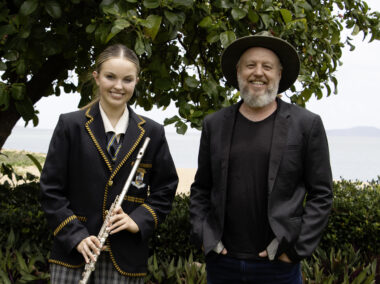With the Australian leg of Taylor Swift’s Eras Tour taking place this week, Monash University experts are available to discuss Taylor Swift’s influence and popularity and her position as a cultural icon.
Professor Paul Long, Creative and Cultural Industries, Faculty of Arts
Contact details: +61 3 9903 4840 or [email protected]
Read more of Professor Long’s work at Monash Lens
- Taylor Swift’s impact
- Taylor Swift’s fans
- Taylor Swift as a pop culture icon
- Taylor Swift as this generation’s Beatles
The following can be attributed to Professor Long:
“Taylor Swift’s success in terms of sales of her music and income from her tours is instructive in relation to the apparent parlous state of the music industry in the digital era and indeed the decline of popular music faced with competition from cultural forms such as computer gaming.
“Likewise, appreciation of Swift’s oeuvre and the devotion of her fans testify to her qualities and status as a songwriter, performer and generator of enormous joy. Swift has expressed her artistry in her productivity but also in the curation and protection of the integrity of her catalogue and her ownership over it. The last is an expression of her power, influence and impact on the cultural economy from the music industries to social media and to cities such as Melbourne that play host to her concerts and gain benefits far in excess of venue ticket sales. As an icon Swift bears comparison with forebears across musical genres and eras but ultimately merits attention for her singularity and contemporary value”.
Associate Professor Brady Robards, Sociology, Faculty of Arts
Contact details: +61 3 9903 4840 or [email protected]
Read more of Associate Professor’s work at Monash Lens
- How Taylor Swift has become a motivator for young people’s connections to politics, carbon emissions, social issues
The following can be attributed to Associate Professor Robards:
“Taylor Swift has become an interesting example of how celebrities can have an impact on politics and young people’s engagement with policies, from the US presidential election to views on carbon emissions and a number of social issues. Her young fans look to her as a role model for how to act and be in a complex and fast-moving world.”
PhD candidate Tace McNamara, SensiLab Monash, Faculty of Arts
Contact details: +61 3 9903 4840 or [email protected]
Ms McNamara is presenting a performance utilising technology to perform a duet with a “clone” of teenage Taylor Swift’s voice at this week’s Swiftposium
- Why Taylor Swift’s music is so successful and accessible to so many people
- Repeated melodic motifs, vocal technique and timbres that characterise Taylor Swift’s sonic aesthetic
The following can be attributed to Ms McNamara:
“From a musical perspective, Taylor’s success is largely to do with her ability to adapt to different musical genres as trends and public tastes evolve. Her vocal technique has been key to this adaptability. Rather than relying heavily on embellishments or virtuosity like other female pop artists, Taylor uses a more relaxed style employing speech level resonance. The aesthetic of this timbre is appreciated more universally and can be used across multiple genres such as folk, pop, electronics and hip hop.
“There are many repeated musical motifs across Swift’s discography that also play on the reward mechanism of our brains. They give us something that sounds just the right amount of familiar, making the music easy to digest and instantly likeable.
“Einstein said that if you can’t explain something simply you don’t understand it well enough. The same can be said for music; the ability to compose a song that is simple and effective demonstrates a mastery of craft. This simplicity and directness means Taylor Swift’s music is appreciated across fans from different genres, generations and corners of the globe.”
Dr Akane Kanai, Communications & Media Studies, Faculty of Arts
Contact details: +61 3 9903 4840 or [email protected]
- Gender dynamics
- Taylor Swift’s place in popular culture
- Media portrayal
The following can be attributed to Dr Kanai:
“The popularity of Taylor Swift, as for many famous women before her and no doubt after her, is a double edged sword. She makes hugely popular music and she is a successful, young white woman. This makes her vulnerable to criticism and attack on two fronts. Most concerningly, as we have seen, there is increasing online abuse by men’s rights activists and right wing groups, who see her as dominating the rightful public space occupied by men, in music and now in American football. Second, we see that she is continually put under the microscope by those who position her as ‘basic’ or ‘too mainstream’, in terms of music, and also expecting more of her in terms of her feminist stance because she is a young successful white woman.
“Swift is a lightning rod for criticism in a social media era where there is immense pressure on celebrities to use their ‘platform’ to adopt a political stance, but where it has also become a social media spectator sport to point and laugh when celebrities ‘get it wrong’ about what are often highly complex and sensitive issues. Thus, when you like a popular celebrity in the age of social media, it becomes tricky because you yourself can become associated with being ‘basic’ and politically problematic.”
For any other topics on which you may be seeking expert comment, please contact the Monash University Media team on +61 3 9903 4840 or [email protected]



